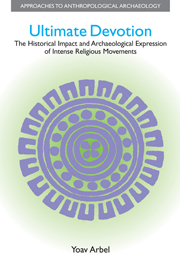 Ultimate Devotion
Ultimate Devotion Book contents
11 - Conclusions – Between Rome and Jericho
from Part II
Summary
Yet, O Lord God of Truth, is any man pleasing to thee because he knows these things? No, for surely that man is unhappy who knows these things and does not know thee. And that man is happy, who knows thee even though he does not know these things. He who knows both thee and these things is not the more blessed for his learning, for thou only art his blessing.
St Augustine, Confessions 5.IV.7The “things” the highly-educated St Augustine refers to are the non-theological fields of knowledge he had studied for years, but which seemed of no use to him after his conversion to Christianity. The knowledge of divinity was now sufficient, and Augustine fully endorsed his mentor St. Ambrose's ironclad rule: “the letter kills but the spirit gives life.” This is the sum of religious intensity: a complete and total switch of both mind and action to a single spiritual direction — the ultimate, unrelenting devotion.
Religious intensity takes to extreme a concept that from a practical perspective is useless and often detrimental to basic human needs, even in its moderate and less compromising forms. Worship and prayer demand time that could be invested in production, rest, or recreation. Sacrifices and alms extract funds with no material compensation to the provider. Taboos eliminate dietary, sexual, and behavioral options. Yet, religious people would see it differently.
- Type
- Chapter
- Information
- Ultimate DevotionThe Historical Impact and Archaeological Expression of Intense Religious Movements, pp. 141 - 150Publisher: Acumen PublishingPrint publication year: 2009


